Yega Xuefei's correct way to share the species of Ethiopian coffee beans
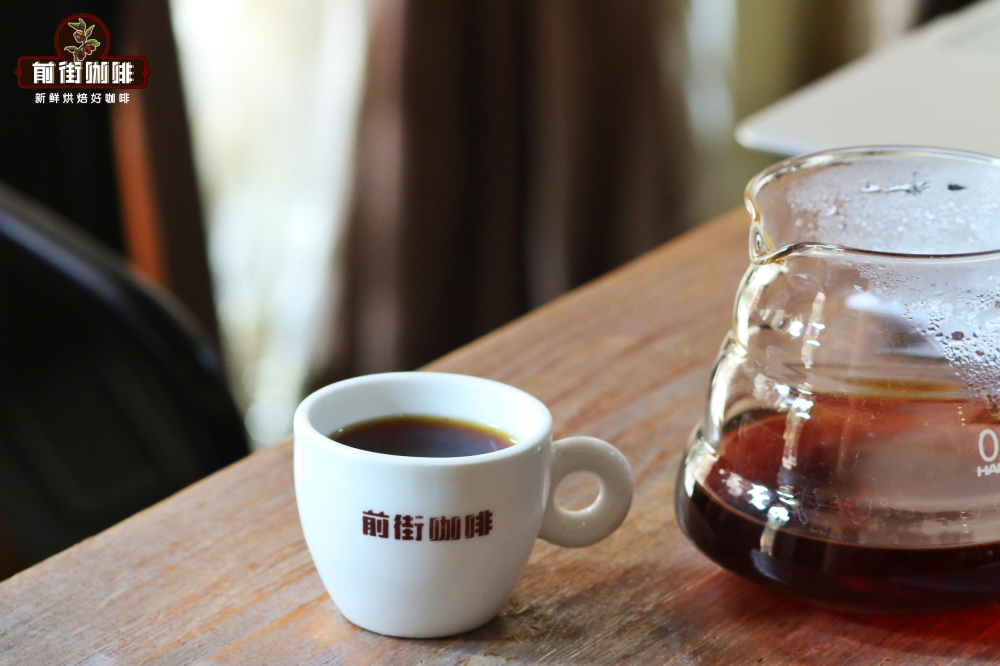
I still remember that at the beginning, Qianjie tasted a cup of Ethiopian hand-brewed coffee and fell into the circle of boutique coffee because he couldn't stop thinking about the sweet and sour fruit flavor. I believe that many friends, like Qianjie, love the floral and fruity flavor of Ethiopian coffee. Today, Qianjie will come to talk about the coffee that fascinates Qianjie. It is also Yega Xuefei, which is the representative of Essex coffee boutique.
Coffee cultivation and Culture in Ethiopia
I wonder if you have noticed that there can be no famous items such as Rose Summer and Blue Mountain in the coffee shop menu, but there must be Ethiopian coffee to choose from. For example, there are eight kinds of Essex beans on the daily bean list on Qianjie Street. We often hear that Yega Xuefei, Sidamo and Gucci are among the best.
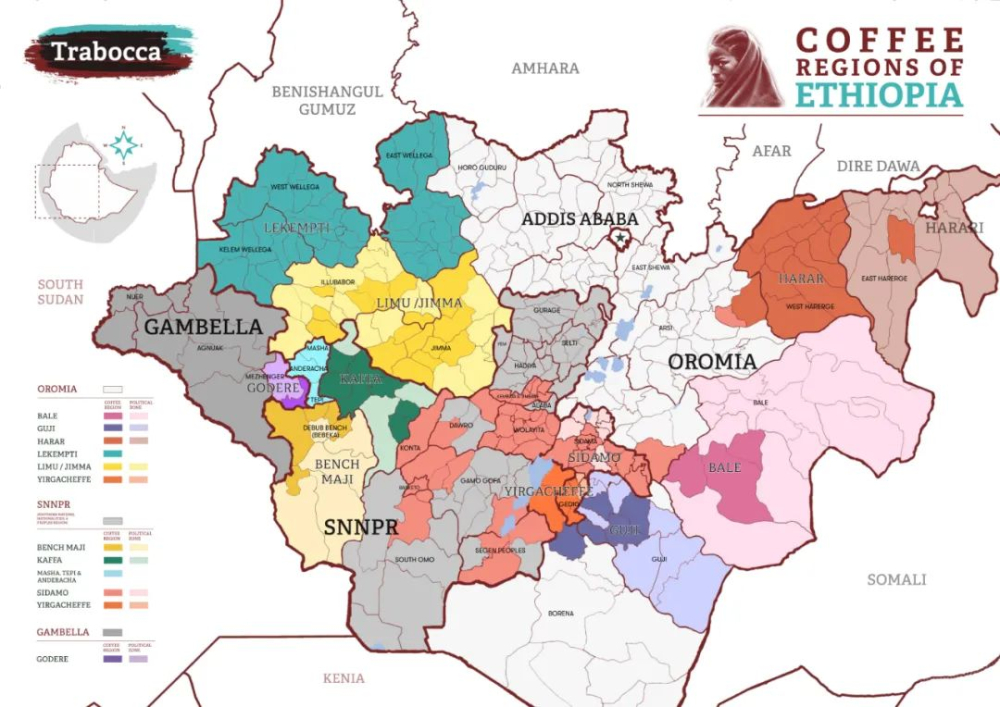
Ethiopia is the largest coffee producer in Africa. Here, coffee is not only an important source of income for Ethiopian people, but also has been integrated into the culture and life of their entire country. Coffee is a very important cash crop in the region, and most parts of the country have the habit of growing and drinking coffee. Ethiopia's coffee production system is divided into four types: forest coffee, semi-forest coffee, pastoral coffee and large plantations, of which pastoral coffee is the most common, with an area of no less than 4 hectares per household. Due to the small output of coffee planted by small farmers, there will be local coffee cooperatives and processing plants, which are mainly responsible for the handling of raw coffee beans in the region. Farmers send their harvested coffee beans to a nearby treatment plant built on water for unified treatment, which will then be sold in the name of the treatment plant.
In addition to being used for export sales, most of the coffee produced by Ethiopia is drunk by Chinese people. No matter whether they have money or not, every household will have a set of utensils for making coffee. For Ethiopians, they drink coffee just like we drink tea. It's a very important social activity.
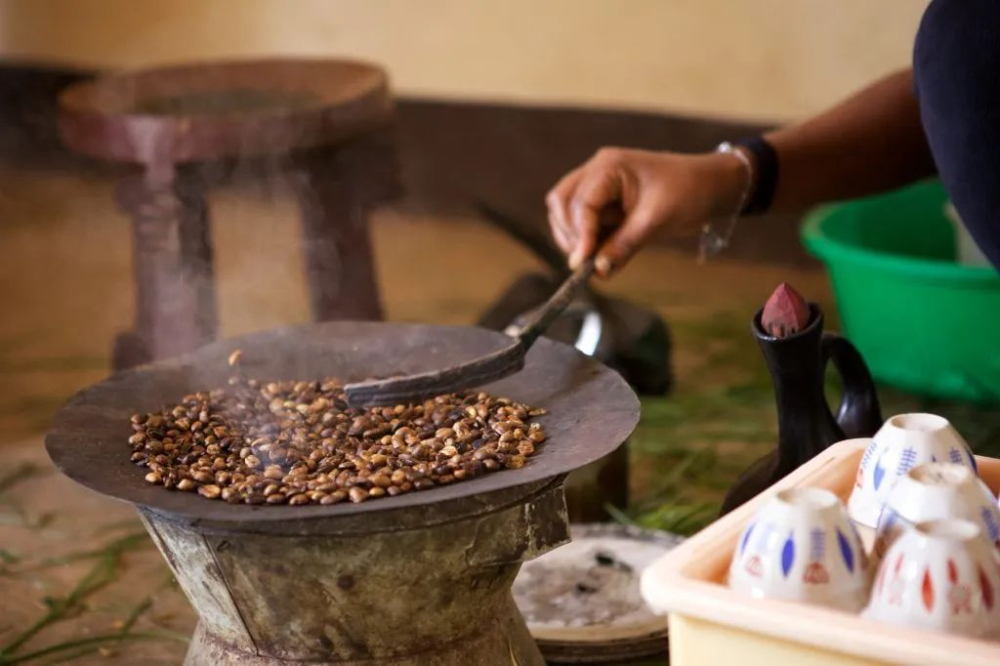
The Ethiopians also have a very long coffee ritual, in which coffee beans are roasted in a pan, mashed with a pestle and mortar, and then boiled in a clay pot called "Jebena". When the hot water mixed with coffee grounds boils, it means the coffee is ready to taste. The coffee ceremony is divided into three rounds, the first cup is Abol, when the elders want to say blessings; the second cup is Tona, people begin to chat about their parents, and the third cup of Beraka symbolizes joy.
The variety of Ethiopian coffee is native.
Friends who often drink Ethiopian coffee should find that Ethiopian coffee beans vary in shape and size, especially in sun beans. But this is normal. Ethiopia is the birthplace of coffee, where tens of thousands of Arabica native species of coffee are preserved, which can be said to be a natural coffee museum. Coffee cultivation is mainly planted by small farmers, which is basically coffee grown by farmers themselves. During the harvest season, the processing station will directly purchase coffee cherries from nearby farmers to deal with them.
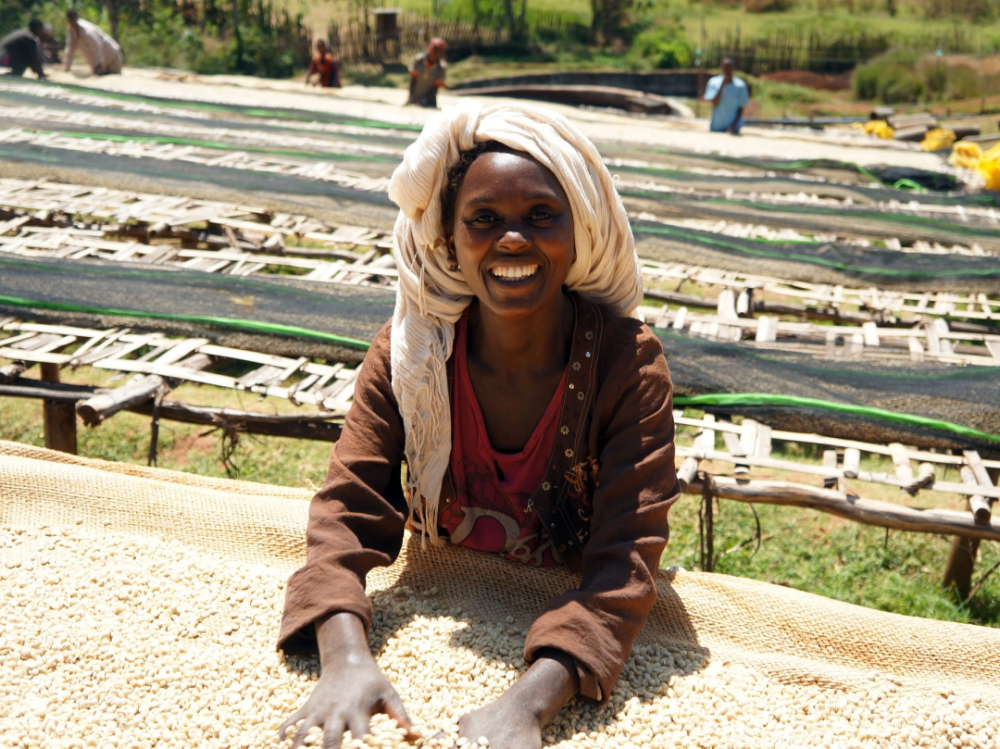
Coffee varieties are already very complicated and difficult to identify, and the Ethiopian government is reluctant to disclose these varieties for the sake of protection, so these coffee varieties are collectively referred to as "native species / Heirloom". Coffee as a crop, the performance of its flavor is naturally inseparable from the innate factors of variety and soil. Qianjie believes that Essel coffee can have charming aroma and fruit tone, which is largely due to the unique planting environment and the excellent quality of the original species.
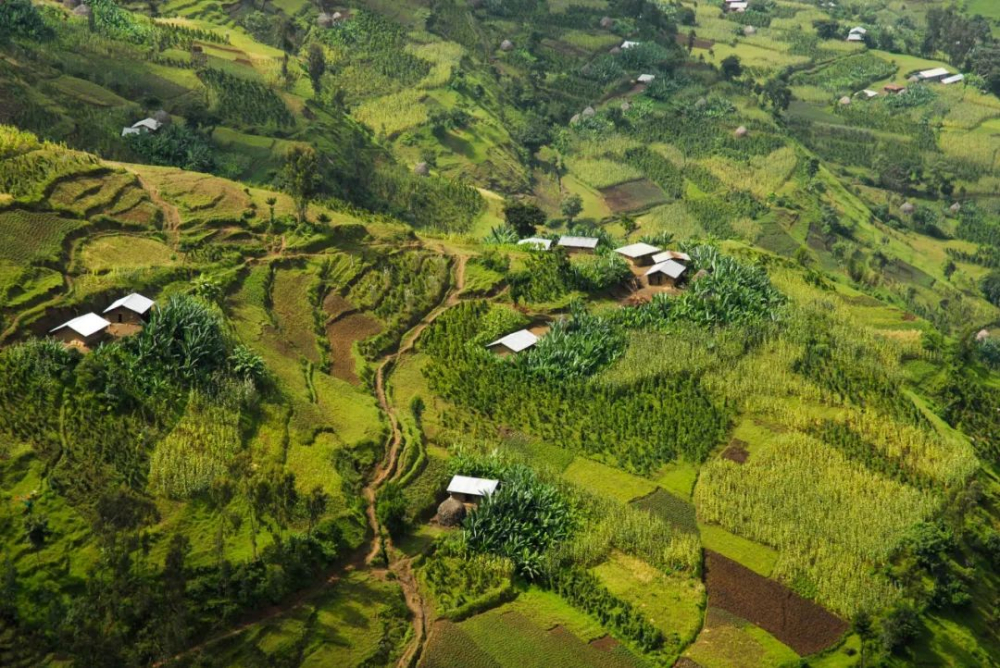
Yega Xuefei Yirgacheffe
The famous Yegashafi is a small town in Ethiopia, about 1700-2200 meters above sea level, the temperature is low, the growth rate of coffee is relatively slow, there is enough time to accumulate more nutrients and flavor substances. Because of the unique flavor and high quality of the coffee beans, Ethiopian farmers compete to take pride in the flavor of their coffee.
Originally under the management of Sidamo in Sidamo, Ethiopia, the Yega Xuefei producing area became independent from the Sidamo producing area and became an exclusive Yega Xuefei producing area because of its unique flavor and growing reputation. The town is foggy, like spring all year round, with a gentle breeze, cool but not hot, rain but not damp, and no cold damage in winter, so it is very suitable for the growth of coffee crops.
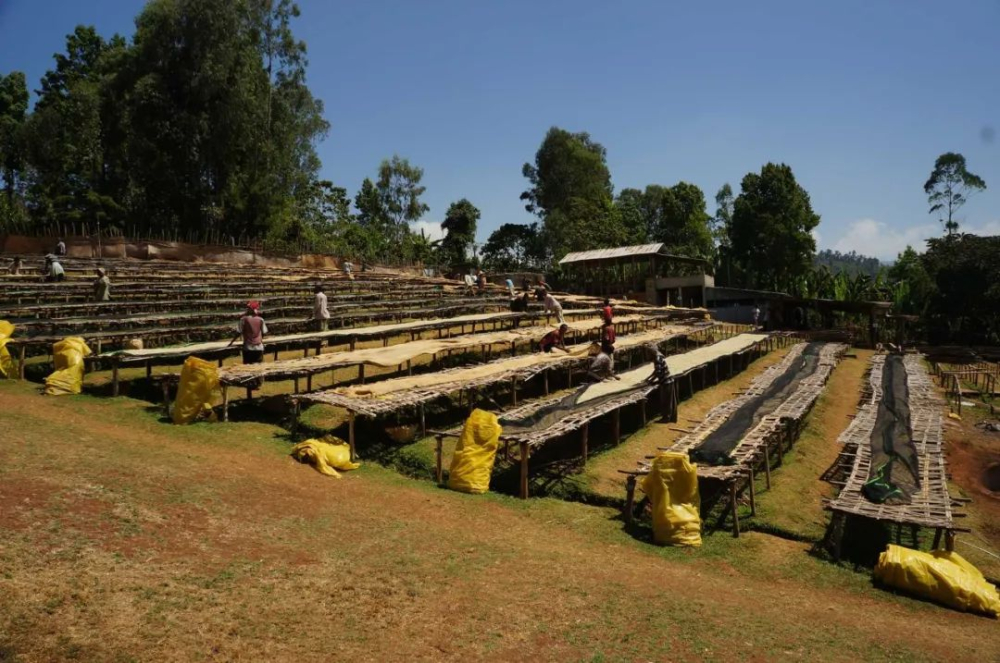
Yega Xuefei treated with water
In the eyes of coffee people all over the world, Yega Xuefei is one of the outstanding representatives of African coffee beans, with bright acidity, yellow lemon aroma rather than general citrus tone, and very clean mouth touch and finish. Yega Xuefei has such a distinct style, in addition to the inherent local conditions, a large part of the reason is due to the washing treatment technology introduced by the Ethiopian government from Central and South America in 1972.
The post-processing of coffee beans is a professional technology. the so-called farmers who specialize in the art industry and know how to grow coffee do not necessarily know how to handle raw coffee beans. The processing procedure of fine coffee is tedious and delicate, which often requires "high capital" equipment to be put into production monitoring. Farms that use the washing method must build washing ponds and be able to introduce an endless supply of running water, so the production cost is higher. Also because the multiple links of washing not only greatly reduce the defect rate of coffee, but also win Yega Xuefei fresh citrus tone and elegant white flower aroma, the overall flavor is bright, delicate and clean, so it is widely praised.
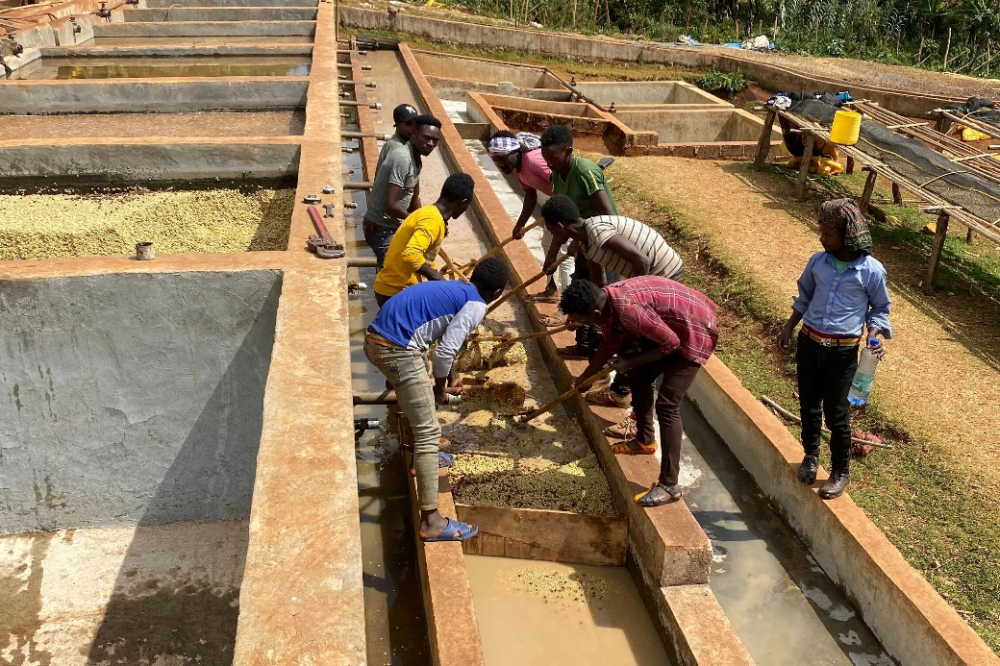
Qianjie launched Yejiaxuefei rations beans is the use of water washing and medium-light baking, with the classic Yega Xuefei flavor, suitable for hand flushing, cold extraction, French kettle and other ways of cooking. Qianjie's rations bean series allows friends who have just come into contact with coffee circles to taste the basic flavor of the producing area at an affordable price, and the design of small packages can also avoid endless waste. If you want to taste the classic aroma of Yega Chuefei, Qianjie thinks the black coffee extracted by hand is the best.
Although washed coffee has become popular for a time, sun treatment still accounts for the main part of Ethiopian coffee. Unlike in the past, today's sun treatment pays more attention to manual screening and ensuring uniform drying. The Fruit Ding Cooperative coffee beans on the Qianjie bean list are Yega Chuefei, which is treated with classic washing, and another red cherry coffee bean is Yega Xuefei, which is treated with exquisite sun treatment, which has a fuller sense of fermentation and tropical fruit flavor.
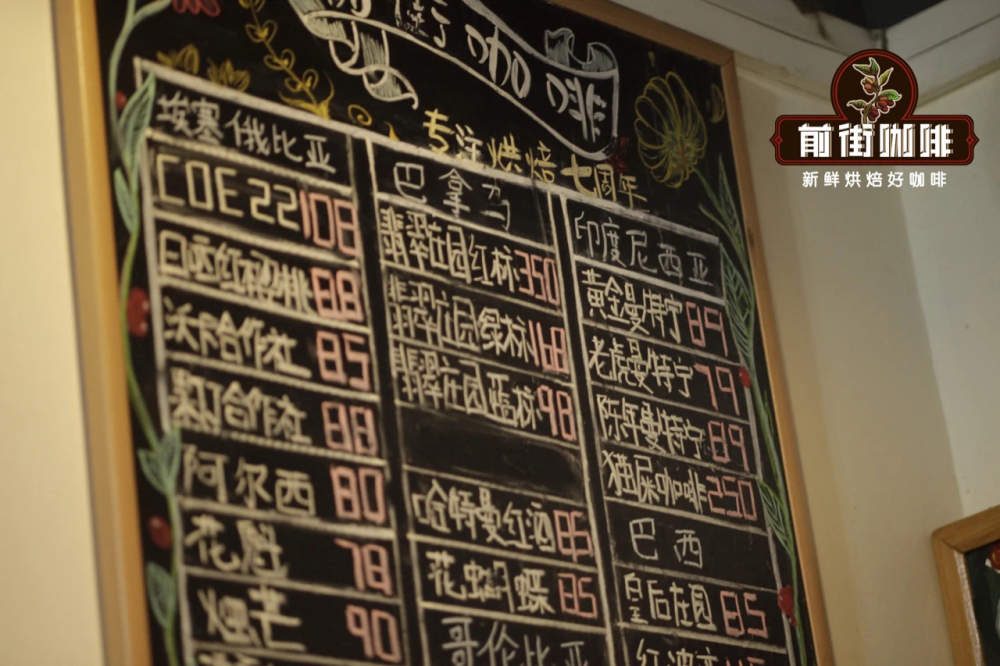
The correct way of brewing Yejia Xuefei
Some fans left a message on Qianjie backstage to consult Qianjie, saying that the coffee they made was only sour and did not have the rich aroma that they drank in Qianjie stores. Here in Qianjie, according to the standard of store production, let's talk about Yejia Xuefei's extraction ideas.
First of all, no matter which method of extraction is used, Qianjie believes that the freshness of coffee beans is very important. The aroma of coffee that has been roasted for more than two months is likely to have been lost, and it is difficult to restore the aroma of the cup even with excellent extraction. In order to make you feel the best taste of coffee, Qianjie only delivers beans that are freshly baked within 5 days, and you can almost start brewing when you receive it.
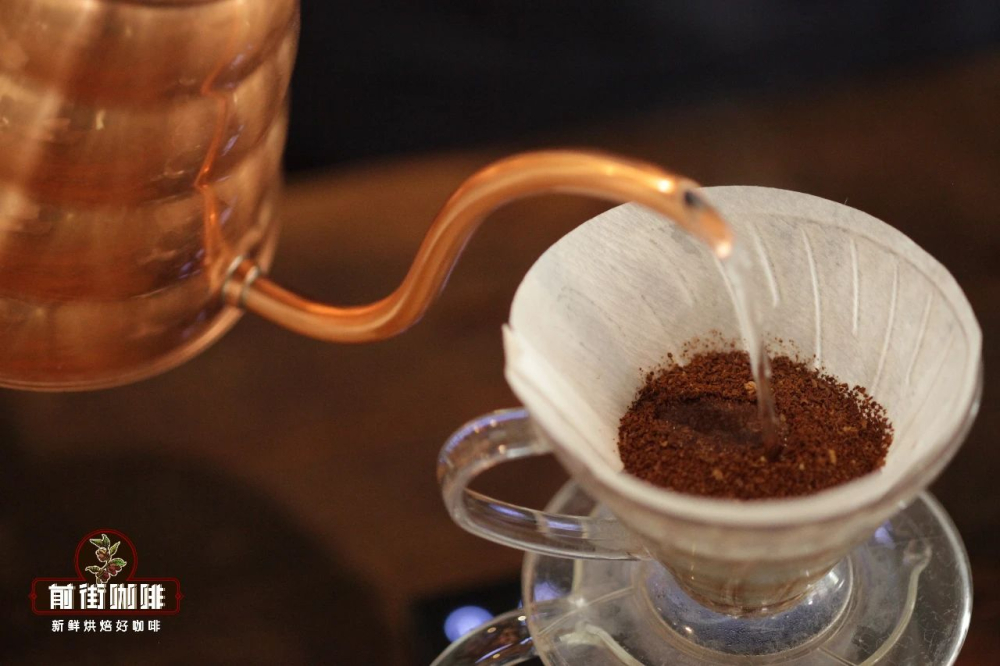
Because Yejia Xuefei uses shallow roasting, the quality of coffee beans is hard, which requires high temperature hot water of 92 ℃-93 ℃ to stimulate the aroma of flowers and fruit in the coffee. Grinding degree Qianjie recommended medium fine grinding degree (the pass rate of Chinese standard No. 20 screen is 78%). Too thick to extract mellow substances, brewed coffee will appear thin; too fine is easy to over-extract at high water temperature and produce bitterness. The coffee extracted by the partner only has a sour taste, probably because the water temperature is too low and the coffee does not fully release flavor substances.
In the process of cup testing, Qianjie noticed that the bean showed different flavors at different temperatures, so three-stage extraction was used to make different flavor substances show better when the powder layer warms up. In order to highlight the fresh and charming aroma of washing Yega, the front street uses a V60 filter cup for cooking. The spiral design of the filter cup allows coffee powder to exhaust better and maximize the volatilization and dissolution of sour substances.
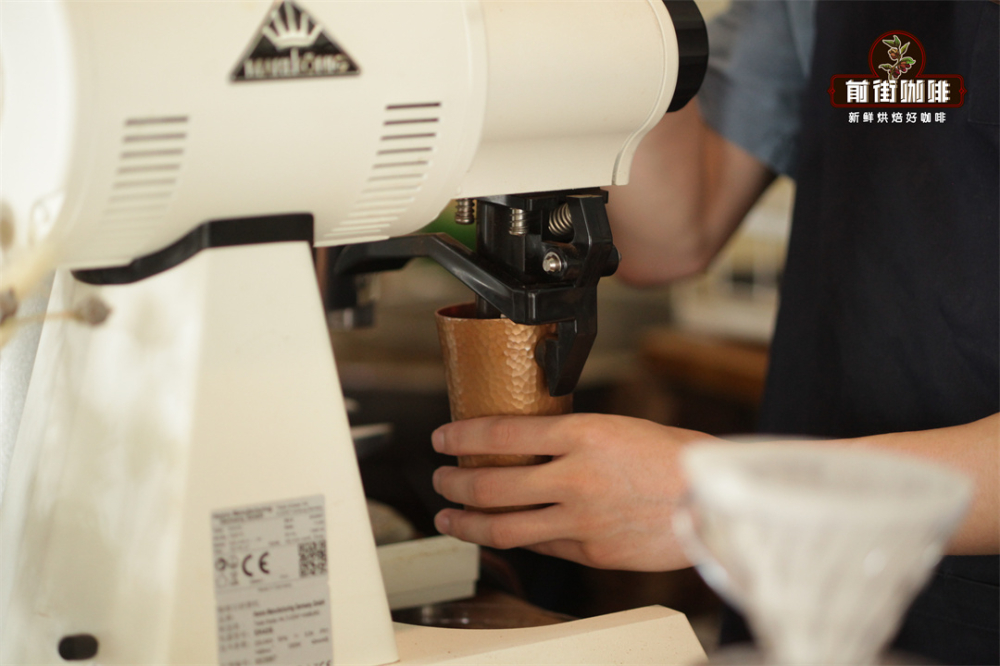
In terms of brewing ratio, Qianjie thinks that either one, 15, or 16 is OK. If you want a stronger taste, use 1:15. If you want to feel the sweetness of the flowers more clearly, you can use 1:16 to spread the flavor.
Filter cup: V60 water temperature: 92-93 ℃ powder quantity: 15g powder water ratio: 1:15 grinding degree: fine sugar size (No. 20 sieve bowl sieve powder to 78%)
Three-stage water injection: wet the powder bed with twice as much water as coffee powder to form a drum and steam for 30s, then fill the small water from the inside to the outer circle to 125g, wait for the powder bed to drop to half of the filter cup, and continue to inject the same fine water into the third section to 225g, until all the coffee liquid has been filtered and remove the filter cup for about 2 minutes. After the coffee in the filter cup flows into the next pot, remove the filter cup, then shake and share the coffee liquid in the pot evenly, and you can taste the flavor of Yega Xuefei from the high temperature.
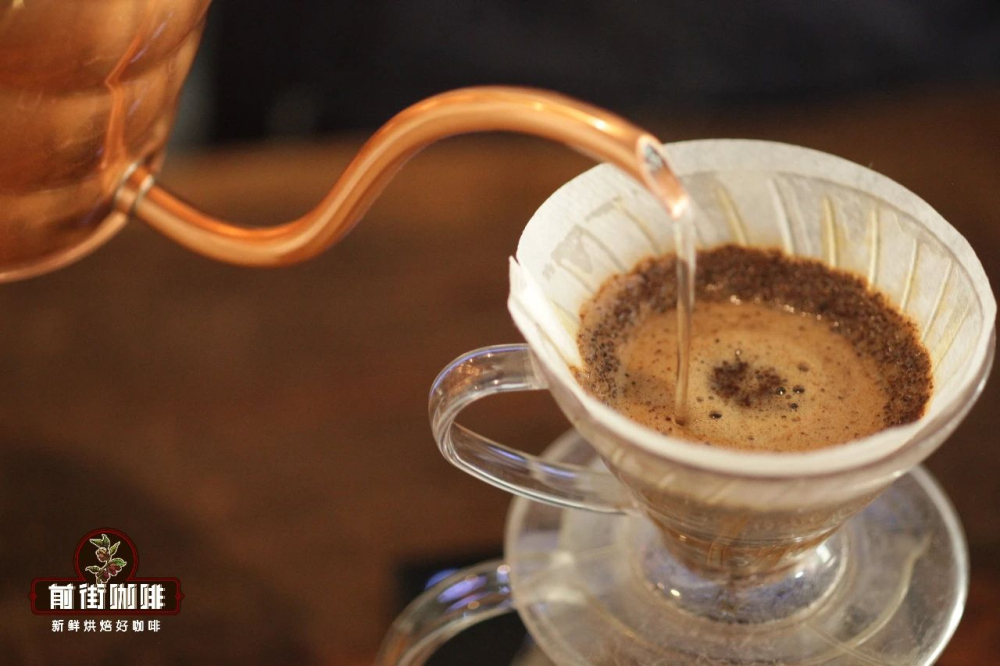
Description of the flavor of hand-washed Yega Xuefei
After the washed Yejiaxuefei coffee beans are ground into powder, you can smell the fragrance of honey and jasmine. After hot water is injected into the current street, it begins to give off a hint of berry flavor. The entrance of the black coffee is bright lemon, citrus and green tea. With the change of temperature, there are raspberry, cream, sugar cane aftertaste, sweet obvious, taste clean and sweet.
Professional coffee knowledge exchange more coffee bean information please follow the coffee workshop (Wechat official account cafe_style)
For more boutique coffee beans, please add private Qianjie coffee on Wechat. WeChat account: qjcoffeex
Important Notice :
前街咖啡 FrontStreet Coffee has moved to new addredd:
FrontStreet Coffee Address: 315,Donghua East Road,GuangZhou
Tel:020 38364473
- Prev
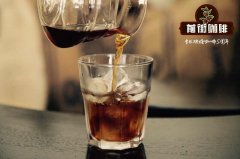
How much coffee does Kenya Nieri produce? Kenyan Nieri coffee flavor African coffee producing area
Professional coffee knowledge exchange more coffee bean information please follow Coffee Workshop (Wechat official account cafe_style) Osaya Coffee Cooperative area: Nyeri height: 1830-1950 masl Harvest time: November-February Standard Export preparation: AA, AB, lead municipalities: Othaya Gene varieties: SL28, SL32, Ruiru 11, Batian arrives in the United States. May-
- Next
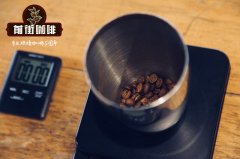
Yega Xuefei's unique taste and what is the difference between washing and tanning?
Professional coffee knowledge exchange more coffee bean information please pay attention to the coffee workshop (Wechat official account cafe_style) Qianjie-Yejasuefei flavor reasons, a brief introduction to sun washing treatment Yejasuefei is a small town, 700-2100 meters above sea level, is synonymous with Ethiopian boutique coffee. It has been a wetland since ancient times, and the ancient saying Yirga means to settle down, Cheffe.
Related
- Beginners will see the "Coffee pull flower" guide!
- What is the difference between ice blog purified milk and ordinary milk coffee?
- Why is the Philippines the largest producer of crops in Liberia?
- For coffee extraction, should the fine powder be retained?
- How does extracted espresso fill pressed powder? How much strength does it take to press the powder?
- How to make jasmine cold extract coffee? Is the jasmine + latte good?
- Will this little toy really make the coffee taste better? How does Lily Drip affect coffee extraction?
- Will the action of slapping the filter cup also affect coffee extraction?
- What's the difference between powder-to-water ratio and powder-to-liquid ratio?
- What is the Ethiopian local species? What does it have to do with Heirloom native species?

